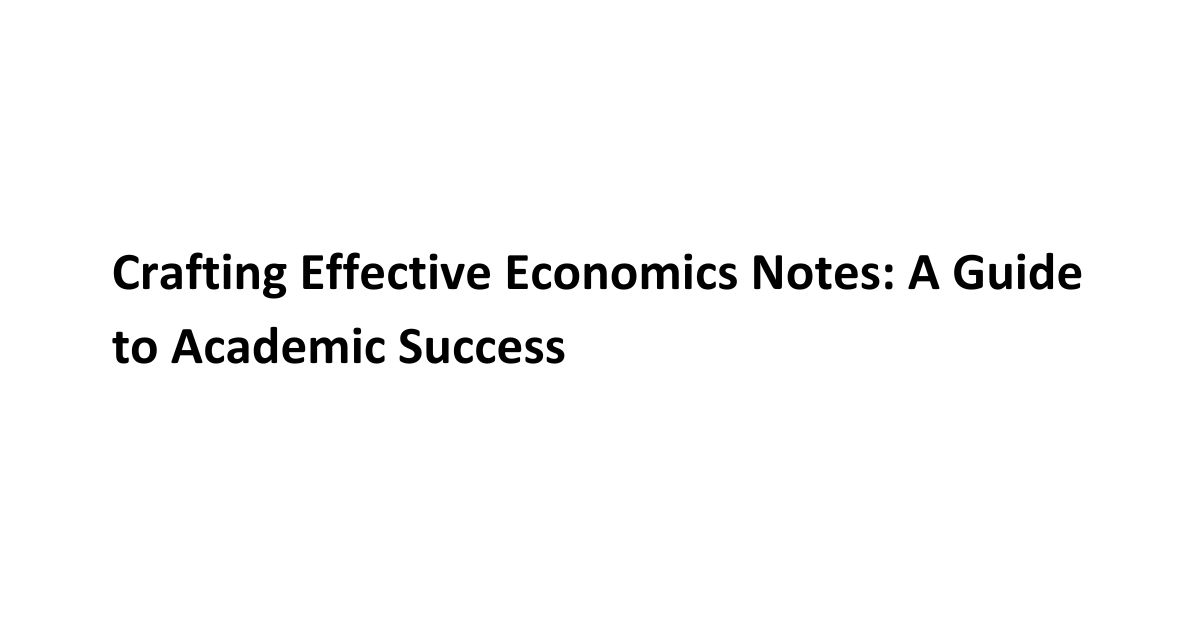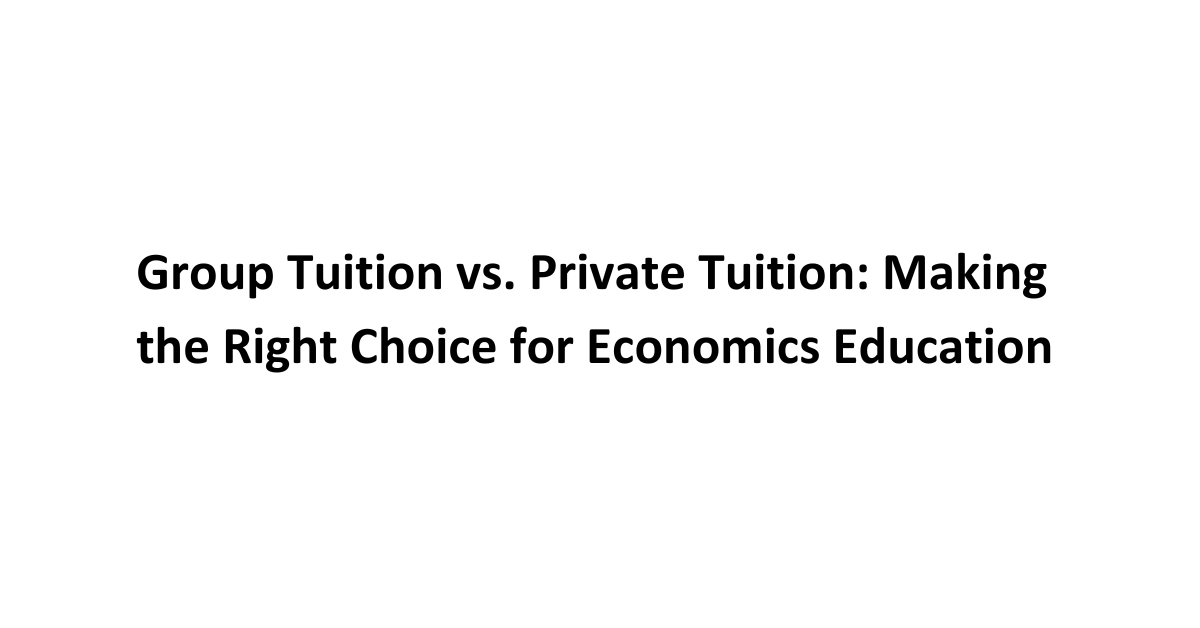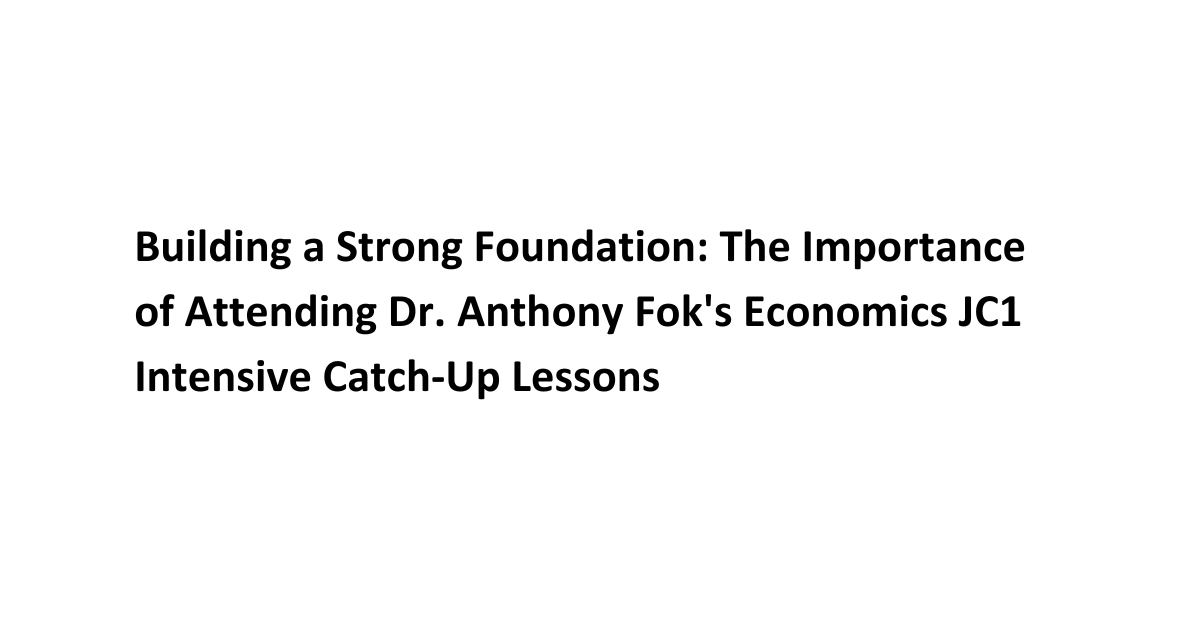19 Oct Crafting Effective Economics Notes: A Guide to Academic Success
Taking effective notes is a fundamental skill for students in any subject, and economics is no exception. Comprehensive, well-organized notes can make a significant difference in understanding complex economic concepts, preparing for exams, and achieving academic success. In this blog article, we will explore the essential elements that make good economics notes and provide strategies for creating them.
1. Clarity and Organization
Good economics notes should be clear and well-organized. They should follow a logical structure that reflects the flow of your course or textbook. Start with an introductory section that outlines the main topics and objectives, followed by subsections for each topic or concept. Bullet points, headings, and subheadings can help you structure your notes effectively.
2. Conciseness
Effective notes are concise and focused. Avoid lengthy paragraphs and aim to capture key points, definitions, and examples. Use abbreviations and symbols when appropriate to save time and space while maintaining clarity.
3. Key Concepts and Definitions
Your notes should prominently feature key economic concepts and their definitions. Clearly define terms and provide concise explanations. Include real-world examples to illustrate how these concepts apply in practice.
4. Visual Aids and Diagrams
Economics often involves graphical representations, such as supply and demand curves or production possibility frontiers. Incorporate these diagrams and visual aids into your notes to enhance your understanding of economic principles. Make sure to label and explain the graphs effectively.
5. Highlighting and Emphasis
Use highlighting or color-coding to draw attention to critical points, formulas, or concepts. This visual emphasis makes it easier to review your notes and quickly locate important information.
6. Real-World Examples
Economics is all about real-world applications. Include examples from news articles, case studies, or personal experiences that relate to the concepts you’re studying. These practical examples will reinforce your understanding of economic principles and make your notes more relatable.
7. Formulas and Equations
In economics, you’ll encounter various formulas and equations. Ensure that you neatly and accurately write out these formulas in your notes. Highlight the variables, explain the significance of each component, and provide examples of how to use them.
8. Questions and Problems
Include practice questions and problem-solving exercises in your notes. These help reinforce your understanding and test your knowledge. Attempt the problems and note the steps to solve them, making your notes a valuable study resource.
9. Summaries and Recap
At the end of each section or topic in your notes, create a summary or recap. These summaries should briefly revisit the main points, key concepts, and takeaways. Summarizing helps reinforce your learning and is an excellent review tool.
10. Regular Updates
Good notes are not static. Regularly update and revise your notes to accommodate new information and concepts as your economics course progresses. This ongoing maintenance ensures that your notes remain relevant and useful.
11. Digital vs. Physical Notes
The choice between digital and physical notes largely depends on your personal preference. Digital note-taking apps offer search functionality and easy organization. Physical notebooks can be more tactile and may help with retention. Experiment with both to see what suits your learning style best.
12. Annotation and Marginal Notes
As you review your notes, add annotations or marginal notes to clarify or expand on certain points. These notes act as a personal guide for understanding and interpretation.
13. Regular Review
Regularly review your economics notes to keep the information fresh in your mind. Reviewing reinforces your understanding and helps you retain the material in the long term.
14. Group Study
If you are open to collaborative learning, consider studying with peers. Sharing and discussing your notes can provide different perspectives and a deeper understanding of economic concepts.
In conclusion, good economics notes are clear, concise, and well-organized. They incorporate key concepts, definitions, real-world examples, visual aids, formulas, and practice problems. Whether you prefer digital or physical notes, the key is to regularly review and update them. Effective notes are an essential study tool, helping you achieve a deeper understanding of economics and perform better in your coursework and exams. Remember, the process of note-taking is a personal one, so don’t be afraid to experiment and adjust your approach until you find what works best for you.







